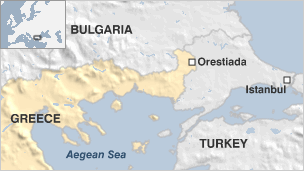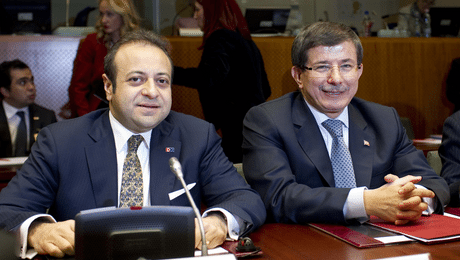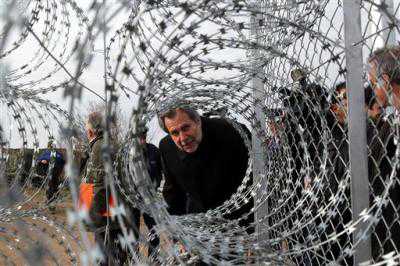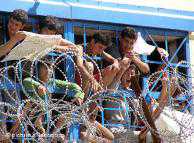Luxembourg The surge in illegal migrants across the porous border between Greece and Turkey was set to prompt European Union ministers to call for drastic changes to Europe’s visa-free Schengen area on Thursday.

Under proposals being considered by home affairs ministers meeting in Luxembourg, the 26 countries in the travel-free Schengen area may be allowed to restore border controls for up to a year under “exceptional circumstances”.
Among those circumstances, according to demands made by France and Germany earlier this year, are problems related to illegal immigration.
Migration has emerged as one of Europe’s most sensitive political issues amid the economic crisis.
Illegal crossings detected on the outer borders of the 26-nation area rose a sharp 35 per cent in 2011, from 104,000 the previous year to 141,000, largely due to flows across the Mediterranean from the Arab Spring upheavals, according to the EU’s Frontex agency manning the borders.
But the second biggest hot-spot was the border between Greece and Turkey, which registered 55,000 detections last year.
With low-cost flights to Turkey on the increase as war, chaos and poverty sends people fleeing hot-spots from Afghanistan and Pakistan to Somalia, the flow is forecast to increase.
A draft document does not spell out illegal migration as a reason to reintroduce checks and the EU’s home affairs commissioner Cecilia Malmstroem has said Schengen was never designed to control migration.
Government change
She also noted this week that since a joint letter from France and Germany was put to ministers in April, the French government has changed, with socialist President Francois Hollande in place of conservative Nicolas Sarkozy.
Sarkozy, chasing the far-right vote, in April threatened to pull out of the Schengen zone within a year failing improved action to keep out illegal migrants.
“For us, this letter no longer exists,” Malmstroem said.
“I’ve not yet discussed it with the new French government but I’m sure France will have a constructive approach at the next interior ministers’ meeting.”
Currently, the Schengen treaty allows renewal of border controls in the case of a terror or security threat thrown up by sports or other events.
But if agreed by the ministers, the draft rules would allow a state within the Schengen area to reimpose border controls for six months, renewable for another six when “exceptional circumstances” require it.
France took that liberty last year, temporarily closing its border with Italy when the Arab Spring revolts threw thousands across the Mediterranean into Italy and Greece.
The European Commission, the EU’s executive arm, has proposed however that states be enabled to close borders for five days in case of migratory pressure, but must seek permission from Brussels for longer periods.
via gulfnews : Greece-Turkey illegal migration sparks call for change in Schengen.
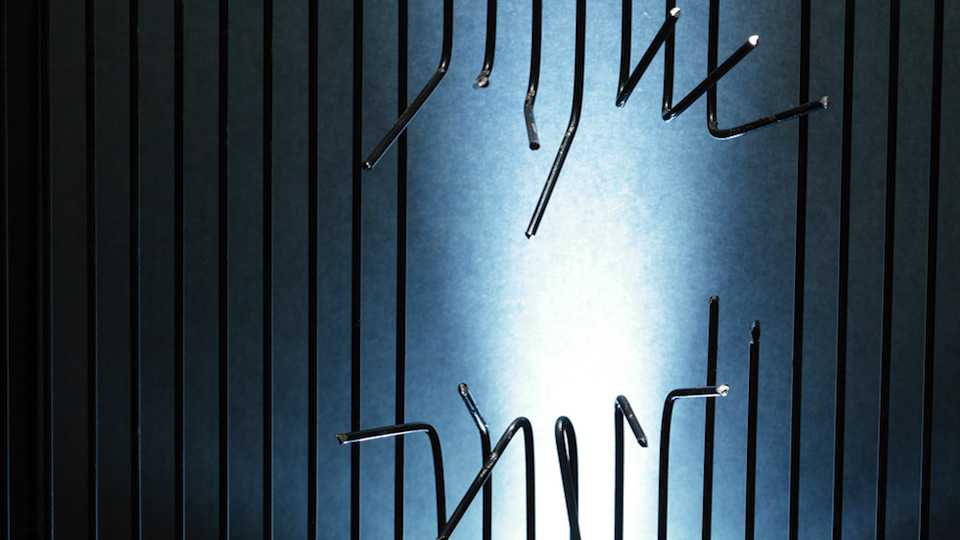 Three of seven inmates who escaped from a Greek prison were captured after crossing into Turkey by swimming across a river, Today’s Zaman, Turkish newspaper reported, and will be sent back to Greece.
Three of seven inmates who escaped from a Greek prison were captured after crossing into Turkey by swimming across a river, Today’s Zaman, Turkish newspaper reported, and will be sent back to Greece.

